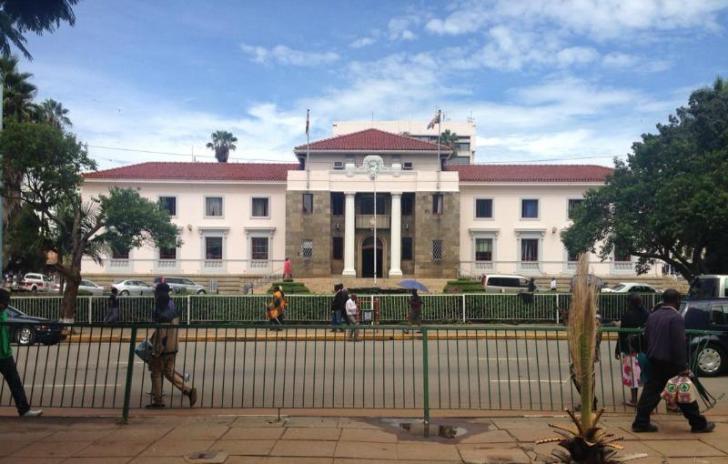News / National
Corporates leaving CBD in favour of suburbs - First Mutual
2 hrs ago | Views

First Mutual Property (FMP) has reported a notable migration of corporate tenants from Harare's Central Business District (CBD) to suburban office locations, citing increased convenience and improved facilities outside the city centre.
Presenting the group's financial performance for the year ended December 31, 2024, FMP board chairperson Elisha Moyo highlighted both the challenges and emerging opportunities within Zimbabwe's evolving real estate sector.
"High vacancy rates persist in the Central Business District as tenants relocate to suburban offices and office parks," Moyo said. "Businesses are moving away from traffic congestion, parking space shortages, and unsatisfactory building conditions, such as malfunctioning elevators and air-conditioning systems in the CBD."
He noted that new local development plans - including the Avondale and E.D. Mnangagwa Road Local Development Plans - are playing a role in reshaping demand by allowing mixed-use developments along major arterial roads, further boosting suburban appeal.
Despite the urban shift, FMP posted strong financial performance, with Net Property Income rising by 62% to US$4.84 million and total revenue growing 31% to US$9.03 million in 2024. Rental income remained the group's primary revenue stream, supplemented by increased property services income, especially project management fees, as well as higher US dollar-denominated rentals and regular rental adjustments.
However, the group faced challenges in rental collections, with rates falling to 75% in 2024 from 85% in the prior year, attributed to the financial strain on tenants. Moyo assured stakeholders that management is actively engaging with tenants to address arrears and maintain operational stability.
"Management will continue to adapt its strategies to protect shareholder value and sustain business operations," Moyo added.
"Prudent capital management, stakeholder engagement, and effective utilisation of available lettable space will remain priorities, alongside ensuring the quality and ambience of our property portfolio."
Moyo emphasized the need for continued public and private sector infrastructure investment to support the long-term sustainability of Zimbabwe's property market.
Presenting the group's financial performance for the year ended December 31, 2024, FMP board chairperson Elisha Moyo highlighted both the challenges and emerging opportunities within Zimbabwe's evolving real estate sector.
"High vacancy rates persist in the Central Business District as tenants relocate to suburban offices and office parks," Moyo said. "Businesses are moving away from traffic congestion, parking space shortages, and unsatisfactory building conditions, such as malfunctioning elevators and air-conditioning systems in the CBD."
He noted that new local development plans - including the Avondale and E.D. Mnangagwa Road Local Development Plans - are playing a role in reshaping demand by allowing mixed-use developments along major arterial roads, further boosting suburban appeal.
Despite the urban shift, FMP posted strong financial performance, with Net Property Income rising by 62% to US$4.84 million and total revenue growing 31% to US$9.03 million in 2024. Rental income remained the group's primary revenue stream, supplemented by increased property services income, especially project management fees, as well as higher US dollar-denominated rentals and regular rental adjustments.
However, the group faced challenges in rental collections, with rates falling to 75% in 2024 from 85% in the prior year, attributed to the financial strain on tenants. Moyo assured stakeholders that management is actively engaging with tenants to address arrears and maintain operational stability.
"Management will continue to adapt its strategies to protect shareholder value and sustain business operations," Moyo added.
"Prudent capital management, stakeholder engagement, and effective utilisation of available lettable space will remain priorities, alongside ensuring the quality and ambience of our property portfolio."
Moyo emphasized the need for continued public and private sector infrastructure investment to support the long-term sustainability of Zimbabwe's property market.
Source - NewZimbabwe
































